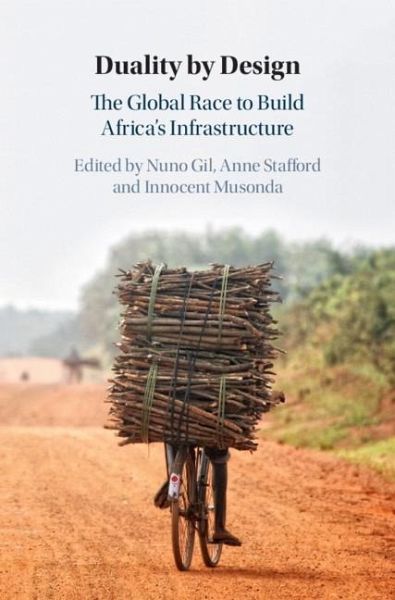
Duality by Design (eBook, ePUB)
The Global Race to Build Africa's Infrastructure
Redaktion: Gil, Nuno
Versandkostenfrei!
Sofort per Download lieferbar
70,95 €
inkl. MwSt.
Weitere Ausgaben:

PAYBACK Punkte
35 °P sammeln!
Africa's rapid population growth and urbanisation has made its socioeconomic development a global priority. But as China ramps up its assistance in bridging Africa's basic infrastructure gap to the detriment of institutions building, warnings of a debt trap have followed. Building upon an extensive body of evidence, the editors argue that developing institutions and infrastructure are two equally desirable but organisationally incompatible objectives. In conceptualising this duality by design, a new theoretical framework proposes better understanding of the differing approaches to development ...
Africa's rapid population growth and urbanisation has made its socioeconomic development a global priority. But as China ramps up its assistance in bridging Africa's basic infrastructure gap to the detriment of institutions building, warnings of a debt trap have followed. Building upon an extensive body of evidence, the editors argue that developing institutions and infrastructure are two equally desirable but organisationally incompatible objectives. In conceptualising this duality by design, a new theoretical framework proposes better understanding of the differing approaches to development espoused by traditional agencies, such as the World Bank, and emergent Chinese agencies. This new framing moves the debate away from the fruitless search for a 'superior' form of organising, and instead suggests looking for complementarities in competing forms of organising for development. For students and researchers in international business, strategic and public management, and complex systems, as well as practitioners in international development and business in emergent markets.
Dieser Download kann aus rechtlichen Gründen nur mit Rechnungsadresse in A, B, BG, CY, CZ, D, DK, EW, E, FIN, F, GR, HR, H, IRL, I, LT, L, LR, M, NL, PL, P, R, S, SLO, SK ausgeliefert werden.













